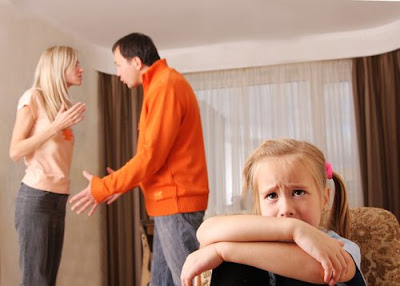GladChild: Child psychology course differ from each other. Some children have a brave personality, but others timid personality. Is this normal for your child? Of course this is a natural thing when experienced by all children. In addition to relating to psychology, dealing also with the age of a child or toddler.
As an example, when the lights went out and suddenly your child screaming and crying in fear. At his age that is still toddlers, children will always have high imagination. It may be that at the time of lights off, she thought of the strange things like imagining a monster that comes before him and intimidate him.
Child psychology such as the above is very reasonable and will be experienced by every child. You do not have to worry about the fear experienced by the child, because it will only be experienced in the toddler after she was past the age of 3 years and the fear will subside by itself.
So what should you do to overcome the psychology of the child who was afraid of the dark? Here are just a few steps you need to know:
As an example, when the lights went out and suddenly your child screaming and crying in fear. At his age that is still toddlers, children will always have high imagination. It may be that at the time of lights off, she thought of the strange things like imagining a monster that comes before him and intimidate him.
Child psychology such as the above is very reasonable and will be experienced by every child. You do not have to worry about the fear experienced by the child, because it will only be experienced in the toddler after she was past the age of 3 years and the fear will subside by itself.
So what should you do to overcome the psychology of the child who was afraid of the dark? Here are just a few steps you need to know:
- Do not always threaten the child if he did not hear what you say. As an example, you frighten him by saying, Hi, there is a ghost. Come here, do not play there! Because often you say it, initially he did not know what the ghost was to be known and fear. With high imagination and continues to grow, children will continue to feel frightened. In addition, keep the child with the spectacle also horror movies or scary books. And parents do not always even scare a child because he did not obey you.
- Accompany your child when the lights go out. Accompany the child remains in the dark so that he continues to feel safe with you. So that is off lights not be scary for your child, you can create a fun atmosphere even in the dark. Make your child always laugh with a funny fairy tale or a shadow play using a flashlight. That way, the child will never be afraid in the dark.
- Children feel afraid of the dark because it could happen from a sense of trauma, for example when he once locked in a dark room until she felt frightened. Therefore, when sleeping at night so as not to turn off the room lights. In addition, still let her favorite dolls to be near his bed to his constant companion during his sleep.
- As a parent who behaves wisely and never blame or scold the child because he was always afraid of the dark. Because it only makes children more afraid.
Child psychology sometimes we can not guess. At the age of a toddler, they are still undergoing developmental stage of growth. That way, the pattern of thought can you grind down early on by teaching a variety of positive things that children always have a good imagination.









